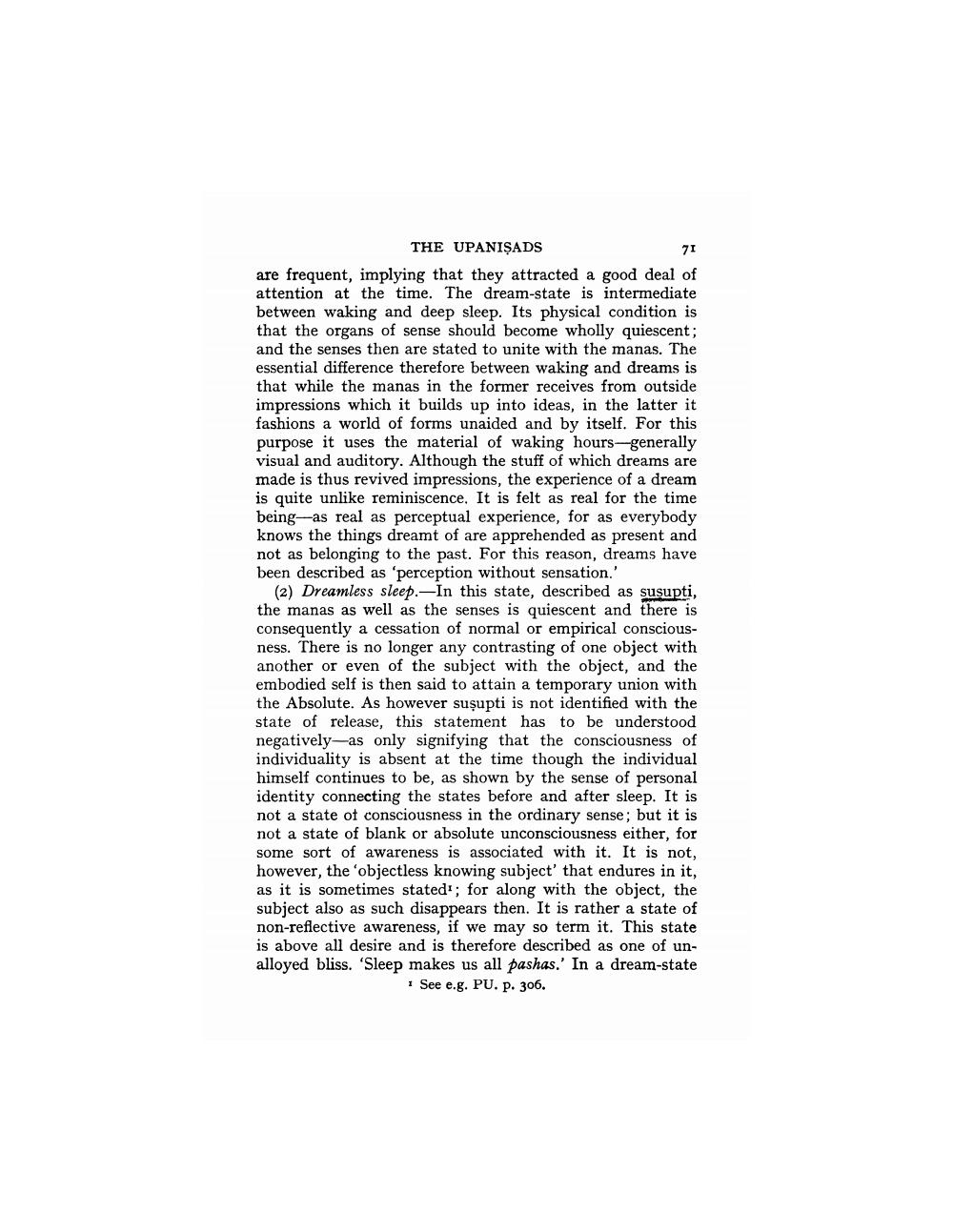________________
THE UPANISADS
71
are frequent, implying that they attracted a good deal of attention at the time. The dream-state is intermediate between waking and deep sleep. Its physical condition is that the organs of sense should become wholly quiescent; and the senses then are stated to unite with the manas. The essential difference therefore between waking and dreams is that while the manas in the former receives from outside impressions which it builds up into ideas, in the latter it fashions a world of forms unaided and by itself. For this purpose it uses the material of waking hours-generally visual and auditory. Although the stuff of which dreams are made is thus revived impressions, the experience of a dream is quite unlike reminiscence. It is felt as real for the time being as real as perceptual experience, for as everybody knows the things dreamt of are apprehended as present and not as belonging to the past. For this reason, dreams have been described as 'perception without sensation.'
(2) Dreamless sleep. In this state, described as susupti, the manas as well as the senses is quiescent and there is consequently a cessation of normal or empirical consciousness. There is no longer any contrasting of one object with another or even of the subject with the object, and the embodied self is then said to attain a temporary union with the Absolute. As however susupti is not identified with the state of release, this statement has to be understood negatively as only signifying that the consciousness of individuality is absent at the time though the individual himself continues to be, as shown by the sense of personal identity connecting the states before and after sleep. It is not a state of consciousness in the ordinary sense; but it is not a state of blank or absolute unconsciousness either, for some sort of awareness is associated with it. It is not, however, the 'objectless knowing subject' that endures in it, as it is sometimes stated1; for along with the object, the subject also as such disappears then. It is rather a state of non-reflective awareness, if we may so term it. This state is above all desire and is therefore described as one of unalloyed bliss. 'Sleep makes us all pashas.' In a dream-state See e.g. PU. p. 306.




